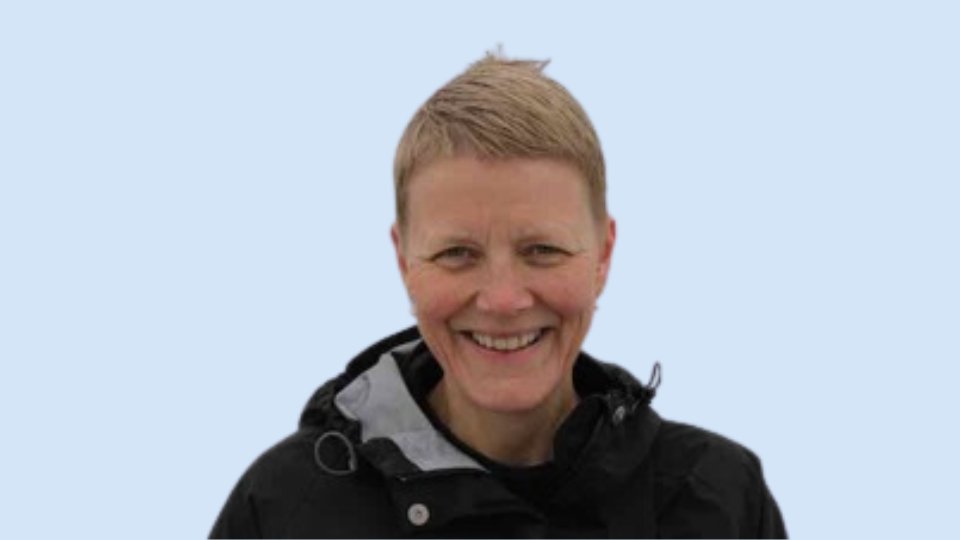About
Ella is a cognitive analytic therapy (CAT) psychotherapist and supervisor, and a licensed member of the UK Council for Psychotherapy (UKCP) and the Health and Care Professions Council (HCPC). She originally worked as an arts therapist with the British Association of Dramatherapists (BADth). She has over 20 years’ experience within the NHS and Priory.
CAT was originally designed for the NHS as a focused, time limited, economically viable therapy that bridged the gap between the more ‘symptom-focused’ cognitive behavioural therapy (CBT) and psychoanalysis. It’s all about our relationships, both with ourselves and others, inclusive of the dynamics of the therapist and client during therapy. This dynamic is held in mind in the context of exploring the possible historical origins and descriptions of problematic patterns of coping that are bought to therapy. The CAT model can also be very helpful working contextually and understanding challenging working environments, group dynamics and our positions within these systems. CAT can also help with difficulties around interpersonal relationships, childhood trauma, depression, generalised anxiety disorder (GAD), unresolved grief, and self-esteem and confidence issues.
CAT has proved to be very helpful to people who have completed an addiction treatment programme and wish to experience a more in-depth psychotherapy. The same would apply if you’re in the early stages of recovering from an eating disorder and managing your symptoms but want to understand and address the underlying psychological issues.
Ella's professional working life has covered diverse, often complex client groups. Within the NHS, she started working for the regional secure unit for West London forensic services as an arts therapist, having started her career working in the homeless sector and prison system. She has worked as a senior CAT psychotherapist and supervisor in secondary care for Kent and Medway NHS and Central and North West London NHS Foundation Trust.
Ella's roles within Priory have included running a famously lively ‘understanding relationships’ group at Hayes Grove for many years, moving on to Fenchurch Street and Harley Street, providing individual CAT. Ella has a holistic approach, with the option of incorporating arts therapies and plenty of humour, despite the often, difficult journey taken.
Position at Priory
Ella has worked for Priory since 2003 alongside her work for the NHS, starting at Hayes Grove and subsequently moving to the Wellbeing Centre at Fenchurch Street and now Harley Street. Her role at Harley Street is as a CAT psychotherapist. She is a member of the UKCP and a registered Association for Cognitive Analytic Therapists (ACAT) supervisor. She is also a member of ACAT.
Training
- UKCP registered CAT psychotherapist - interregional residential psychotherapy training, ACAT, 2014.
- Registered ACAT supervisor - residential ACAT supervision training, 2014.
- Creative arts supervision training - independent: recognised and validated by BADth, 2008.
- CAT practitioner diploma - St Thomas’ psychotherapy unit, South London and Maudsley NHS Trust, 2008.
- Practitioner training in CAT - South London and Maudsley NHS Trust eating disorder service, Bethlem Hospital, 2007.
- 1-year foundation course - Institute for Arts in Therapy and Education, 2001.
- HCPC registered arts therapist and postgraduate diploma in drama and movement therapy - The Central School of Speech and Drama, 1999.
Links to clinical articles/research papers:
- System Training for Emotional Predictability and Problem Solving (STEPPS). Outcomes and Experiences of Running a Pilot Psychoeducational Group Programme for people with a diagnosis of Borderline Personality Disorder. Annual Consultants Psychiatric Seminar/South East Directorate.
- ‘The owl that becomes of the ‘I’’: An explanation of the ‘Observing Self ‘ in CAT using projected play. 19th ACAT Annual Conference.
- ‘The space between’ - what happens if we start being and stop doing? Between the letters and the diagrams of a CAT therapy, there is the possibility of ‘the place space’ how do we learn to trust this potentially rich unknown territory, ensuring it continues to be a space that is therapeutic? 24th Annual ACAT Conference.

